🌟 Introduction: The Auspicious Beginning of a New Year
2025 Gudi Padwa New Year Festival
Gudi Padwa is a festival of new beginnings, prosperity, and victory! Celebrated primarily in Maharashtra, this festival marks the Hindu New Year according to the Lunar Calendar. Homes are decorated with vibrant rangolis, delicious sweets like puran poli are prepared, and the most striking sight is the Gudi – a beautifully decorated flag hoisted outside homes to mark success and positivity.
📅 Date of Celebration: Falls on the first day of Chaitra month (March-April).
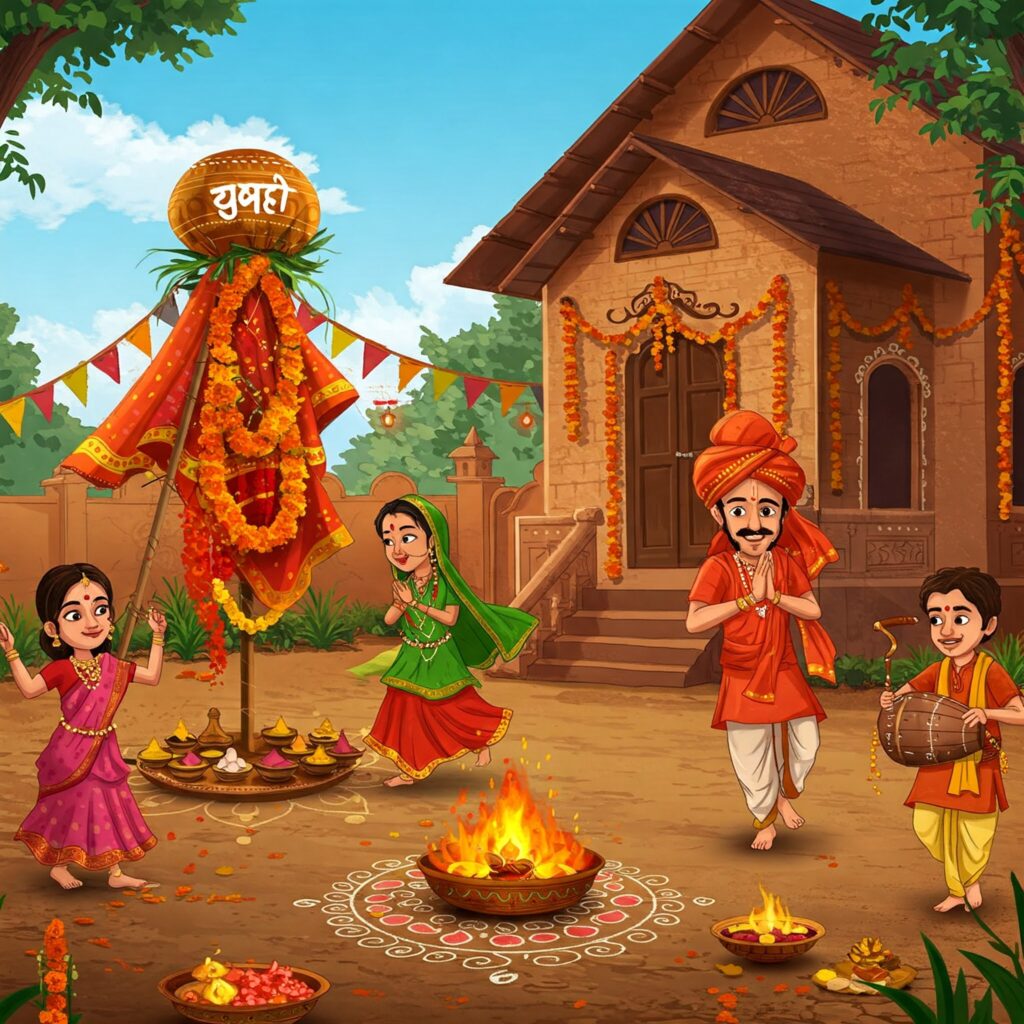
🌿 Why is Gudi Padwa Celebrated?
Gudi Padwa carries deep historical and mythological significance:
✅Victory of Lord Rama
According to Hindu mythology, this is the day when Lord Rama returned to Ayodhya after defeating the demon king Ravana. The Gudi (flag) symbolizes victory and righteousness.
✅ Creation of Time
It is believed that Lord Brahma created the universe on this day, marking the beginning of time itself. Hence, it signifies a fresh start.
✅ Shivaji Maharaj’s Victories
Chhatrapati Shivaji Maharaj, the great Maratha warrior, is said to have raised the Gudi after his victorious battles, making it a symbol of Maratha pride and power.
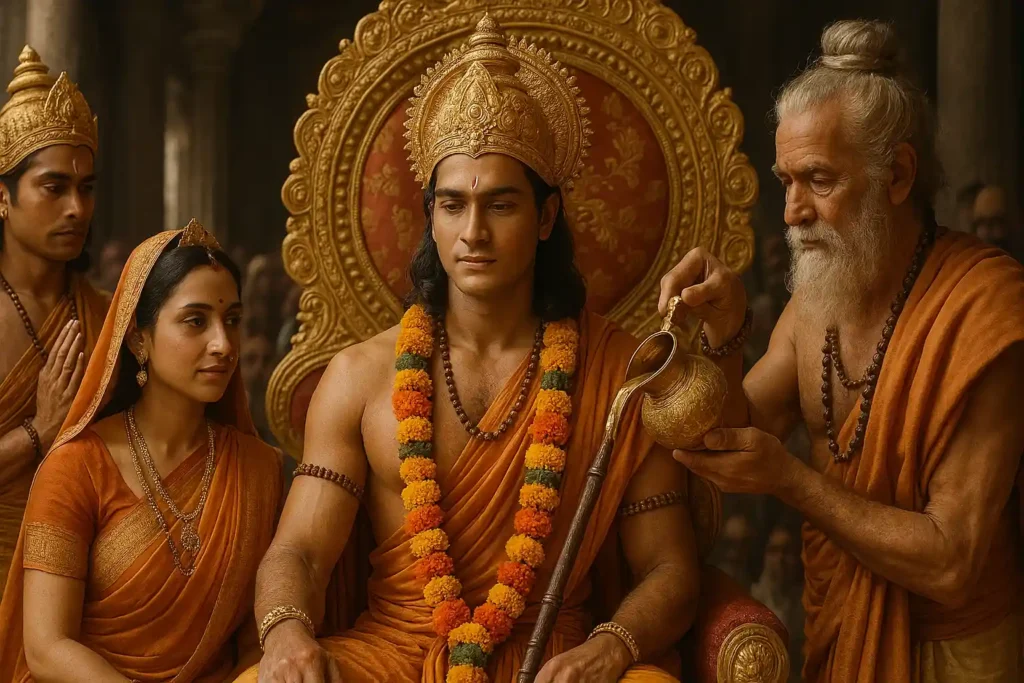
🌸 The Rituals & Traditions of Gudi Padwa
Gudi Padwa is celebrated with great enthusiasm, and here are some key traditions:
1️⃣ Early Morning Bath & Oil Massage (Abhyanga Snan)
- People wake up early and take a holy bath after applying scented oils.
- This ritual cleanses the body and mind, bringing in positivity.
2️⃣ Rangoli Decoration 🎨
- Colorful rangolis adorn the entrances of homes, inviting positivity and good fortune.
3️⃣ Hoisting the Gudi: The Most Iconic Tradition 🚩
- A long bamboo stick is draped with a bright silk cloth (yellow or saffron).
- A garland of neem and mango leaves is tied.
- A silver or copper pot (Kalash) is placed on top.
- The Gudi is raised outside homes, symbolizing victory and prosperity.
4️⃣ Prayers & Offerings 🙏
- Families perform puja and offer neem leaves, jaggery, and coconut as prasad.
- Devotees seek blessings for a prosperous year ahead.
5️⃣ Feast with Traditional Delicacies 🍽
- Puran Poli: A sweet flatbread stuffed with jaggery and lentils.
- Shrikhand Puri: A sweet yogurt dish paired with crispy puris.
- Katachi Amti: A tangy lentil-based curry.
🌍 How Different States Celebrate New Year on This Day
While Maharashtra celebrates Gudi Padwa, several states observe the New Year in their unique way:
- Karnataka, Andhra Pradesh & Telangana: Celebrated as Ugadi with similar rituals.
- North India: Marks the beginning of Chaitra Navratri.
- Kashmir: Celebrated as Navreh.
- Sindhi Community: Known as Cheti Chand.
- Punjab: Celebrated as Baisakhi (a few days later).
Despite different names, the spirit of renewal and joy unites people across India!
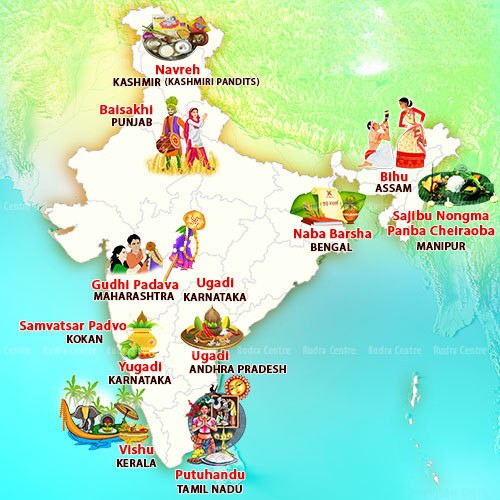
🎊 Modern Ways to Celebrate Gudi Padwa
With changing times, people have found modern ways to embrace this tradition:
📲 Digital Celebrations & Wishes
- People send Gudi Padwa WhatsApp greetings and social media posts to share festive vibes.
- Virtual pujas and live-streamed celebrations are common for those away from home.
🏡 Eco-friendly Gudi Padwa
- Many opt for biodegradable decorations and avoid plastic items.
- Planting neem and mango saplings as a tribute to nature is gaining popularity.
🛒 Shopping & Gold Purchases
- Buying gold, silver, or property on this auspicious day is considered lucky.
- Many people also shop for new clothes and home essentials.
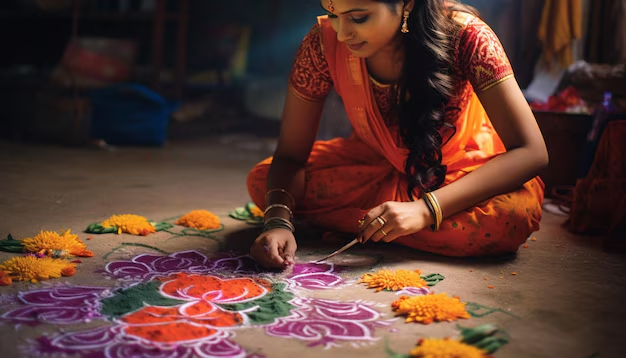
🏖 Best Places to Experience Gudi Padwa in Maharashtra
Want to witness Gudi Padwa in its grandest form? Visit these places:
🌆 Mumbai – The Heart of Celebrations
- Grand processions take place in Girgaon & Dadar.
- Women participate in Shobha Yatras wearing traditional nauvari sarees.
🌇 Pune – Rich in Heritage & Culture
- The historic Shaniwar Wada hosts traditional performances and vibrant processions.
🌈 Nashik – Spiritual Celebrations
- Temples like Kalaram Mandir conduct special pujas and rituals.
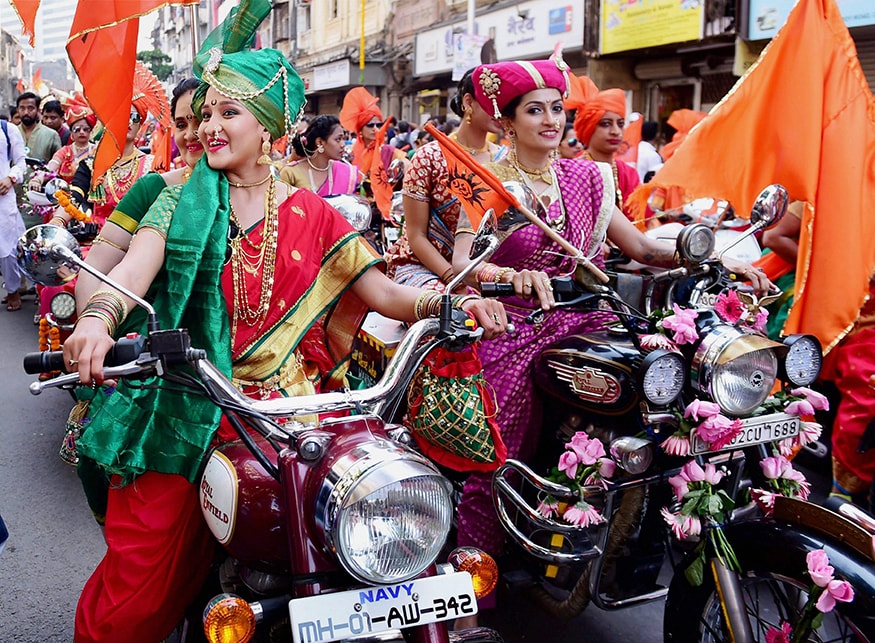
🎉 Conclusion: A Festival of Hope & Happiness
Gudi Padwa is more than just a New Year celebration—it’s a festival of hope, success, and new opportunities. As you hoist the Gudi this year, let it be a symbol of positivity, prosperity, and achievements in your life! 🌟
